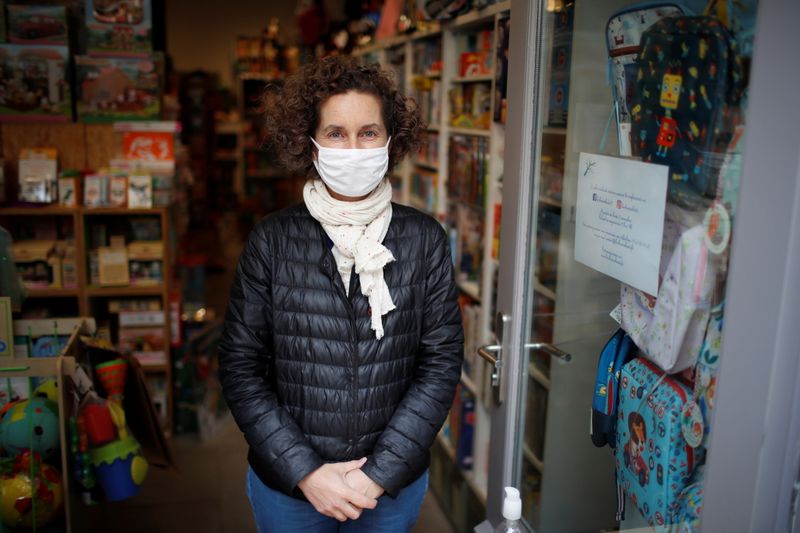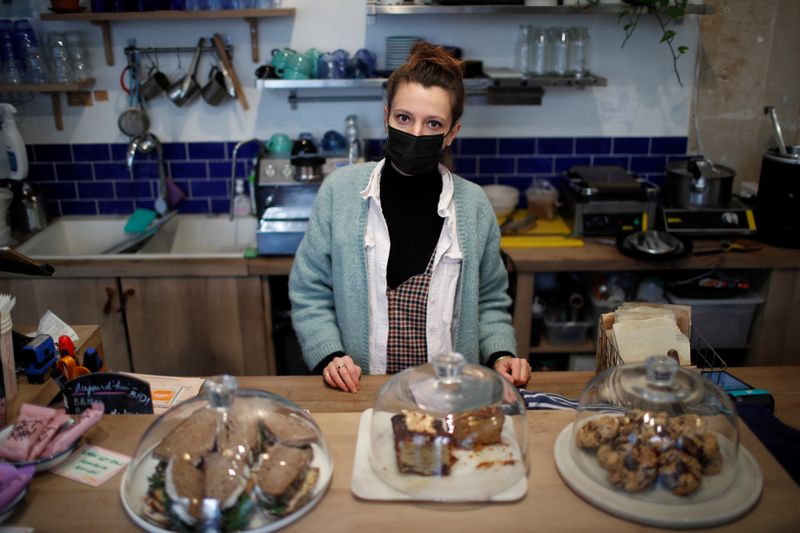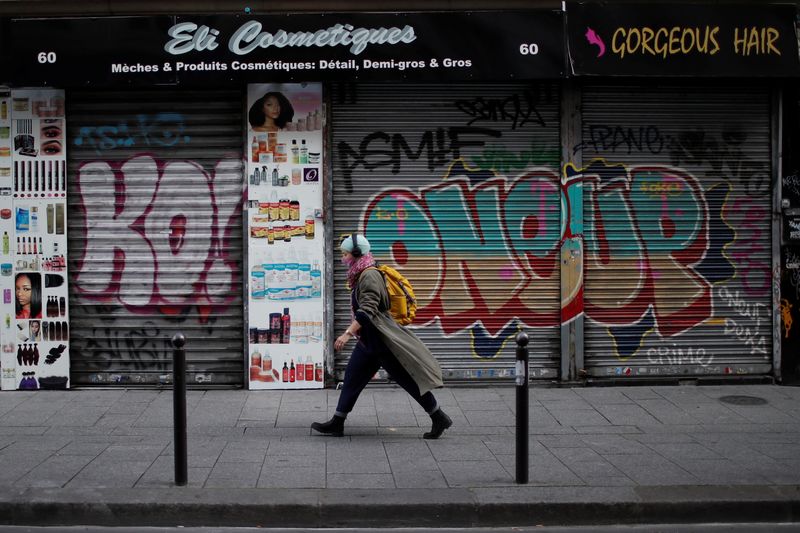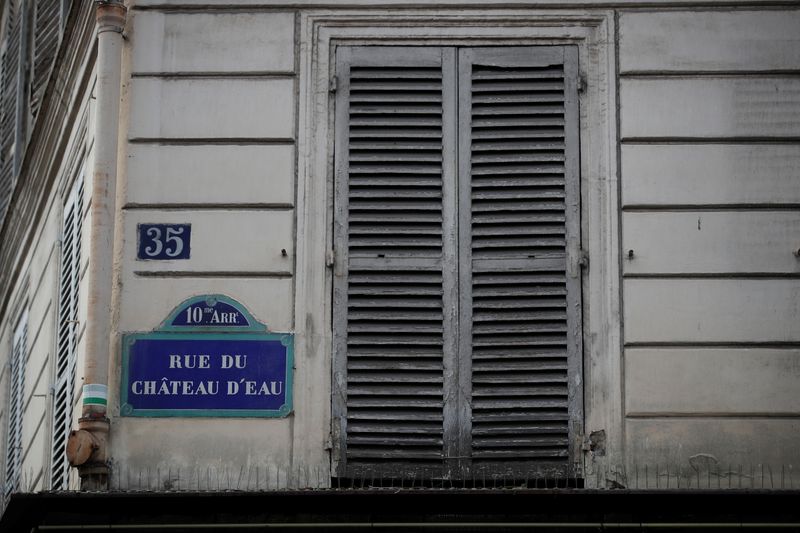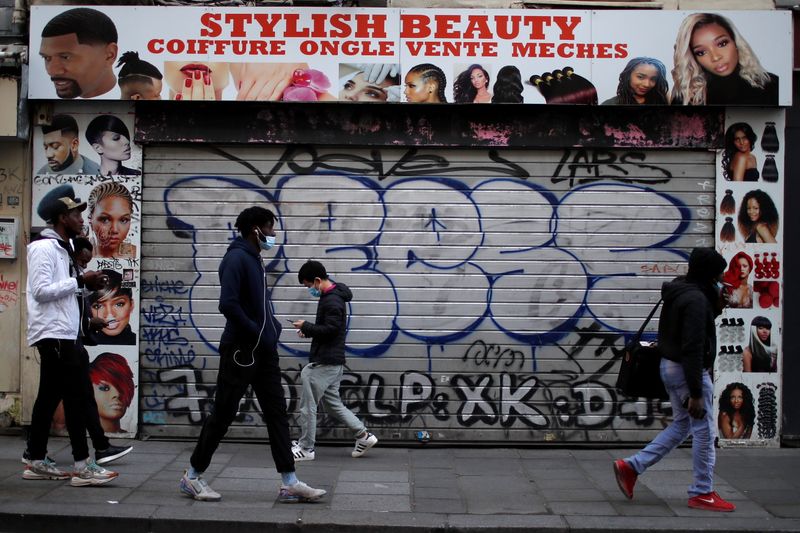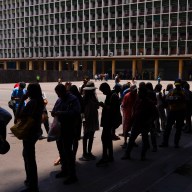PARIS (Reuters) – Toy store owner Marie Boudier is grateful November has been unusually mild in Paris this year – she’s trying to survive France’s second coronavirus lockdown by selling Lego sets and colouring books through her open front door.
From behind a trestle table, Boudier has taken to handing over her orders without letting customers in, a makeshift measure replicated up and down her street and across France amid a minefield of dos and don’ts for stores deemed non-essential.
“It’s not exactly clear to what extent we’re doing it right,” Boudier said, breaking away to show one shopper little bags of marbles.
She said she had not found official instructions on how to operate, but had not been told off so far, and was otherwise resorting to social media sites like Facebook to try and drive online sales for “L’Arbre Enchante” (The Enchanted Tree).
Formally banned from opening to shoppers since late October, stores on the no-go list in France, from booksellers to florists, are experimenting to avoid closing down fully following a two-month lockdown in the spring.
The French government has so far been tolerant, and few shops have so far been fined for breaches, said Francis Palombi, the head of a federation of small retailers which is campaigning for all stores to re-open by Dec. 1 or earlier.
But the improvised operations are symptomatic of a more unwieldy lockdown this time, as resentment against online giants like Amazon brews and retailers fear for their livelihood.
In Boudier’s corner of the city just by the central Place de la Republique, on Rue du Chateau-d’Eau, one plant store, Adelaide Avril, is still handing over goods through a hatch in the doorway.
Customers can try and compose bouquets by pointing at flowers from a distance, or pick out vases and pots on its website and come and collect them.
Further up the road, vegetarian cafe and juice bar Yumi is open for takeouts, operating with reduced staffing as some employees remain on furlough schemes. It has converted its table space into a grocery store, lining up the boxes of butternut squashes and broccoli stems it usually kept for its kitchen.
The trickle of vegetable sales are not making up for the broader hit to revenues, said Laure Duteurtre, who normally runs the restaurant side of the business. But the cafe wants to hold on to some regulars for when it can re-open, she said.
“It’s one way for us to keep a relationship going with our customers,” Duteurtre said.
OFF LIMIT ITEMS
Even some shops allowed to let customers in, including a local bakery, said business was down in a neighbourhood with many offices.
An indoor market on the street, home to fruit and fish stalls, was practically deserted on a mid-week afternoon.
Still, an upscale kitchenware and home decor store nearby, La Tresorerie, is the envy of the vintage clothing shops, printmakers and fabric stores that are completely off limits.
An updated government list of what goods were deemed essential or not – after an unsuccessful campaign in France to keep booksellers open in early November – gave pots and pans the green light.
Manager Denis Geffrault is now letting customers in again. Displays of bathrobes and shelving units are sealed off with tape, but shoppers can browse for porcelain baking dishes, oak chopping boards and glassware.
The carve-up of essential and non-essential goods was unfair for small stores, including for his neighbours, when many were in a position to implement effective sanitary controls, Geffrault said. But he too is trying to get by.
“We’ve got to pay the rent,” Geffrault said.
(Reporting by Sarah White and Yiming Woo; Editing by Angus MacSwan)

